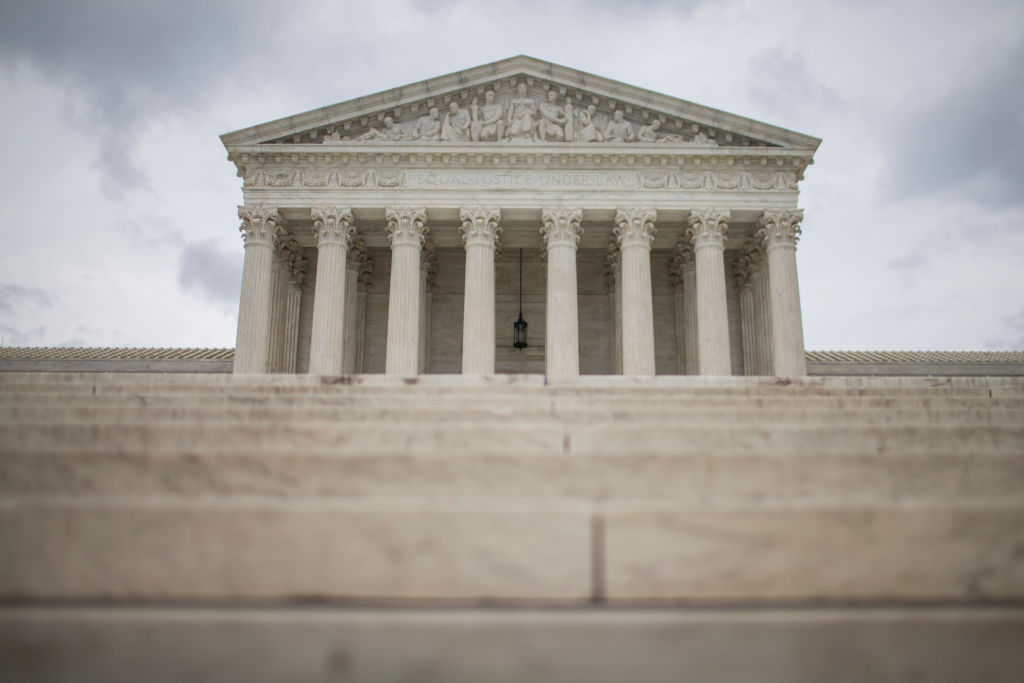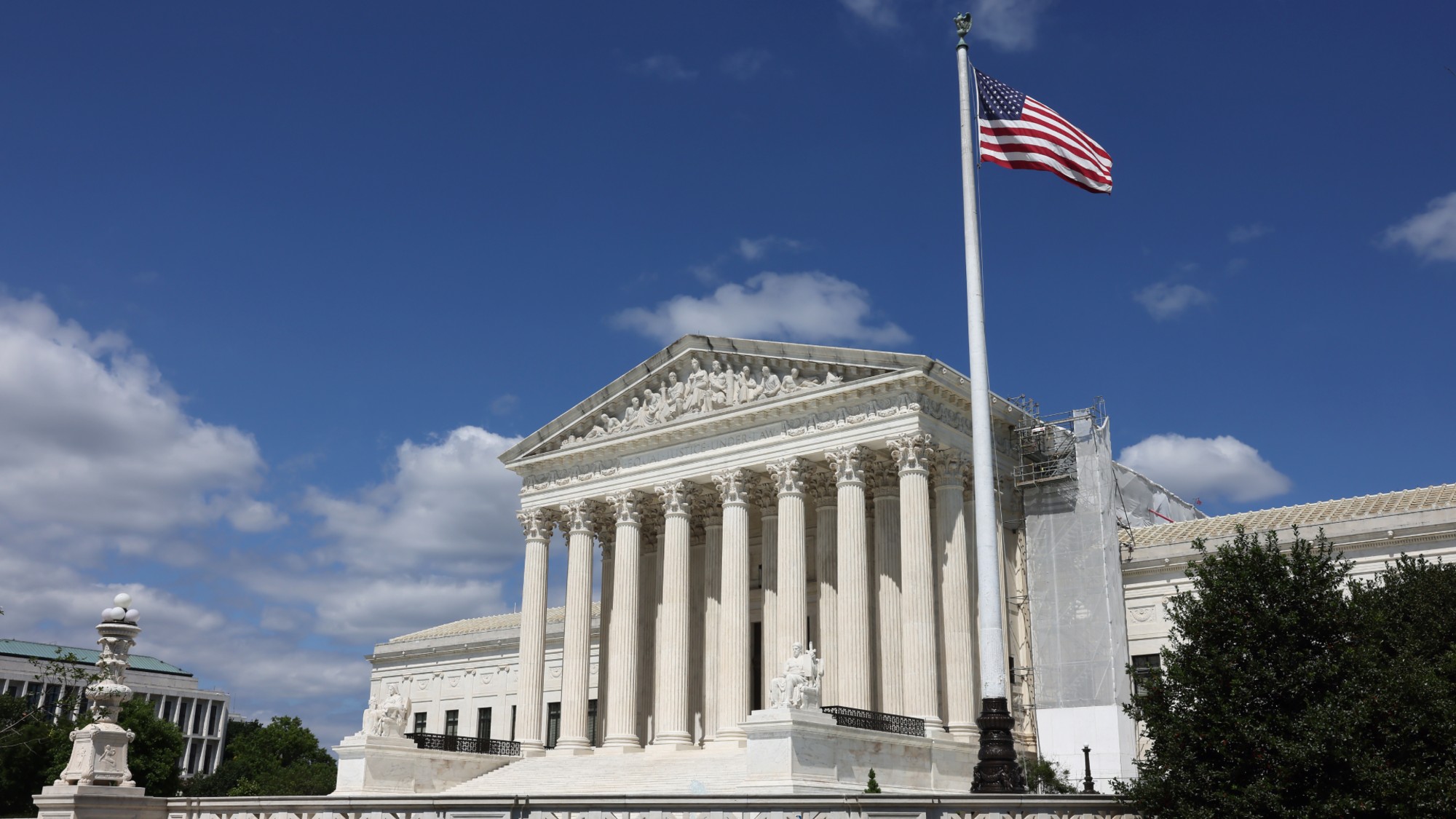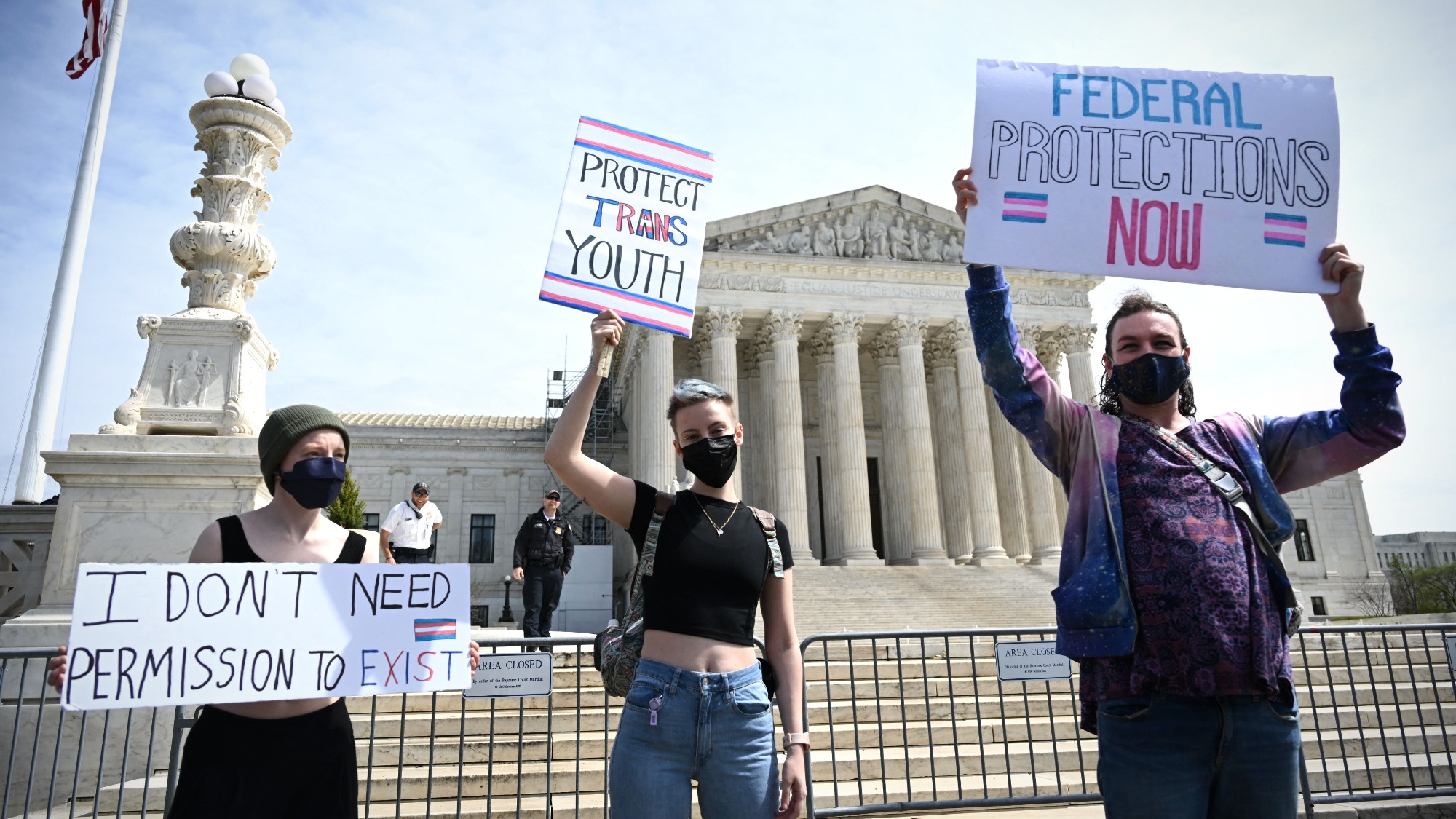Who will be Trump's next Supreme Court pick? This chart might hold the answer.


All eyes are on President Trump, who is preparing to replace retiring Supreme Court Justice Anthony Kennedy with his second pick for the nation's highest court. Because this is not the president's first rodeo, though, anxious onlookers can actually get a pretty good idea of the type of judge Trump might be considering — by looking at his shortlist from last time. "It will be somebody from that list," Trump said Wednesday. "They will come from that list of 25 people."
Of Trump's 25 potential Supreme Court nominees in 2016, 12 were included in an ideological analysis by political scientists Lee Epstein, Andrew D. Martin, and Kevin Quinn, Axios reports. Of those potential nominees, only one — sitting Sen. Mike Lee (R-Utah) — was rated as being more conservative that Justice Neil Gorsuch, although three others (Diane Sykes, Margaret Ryan, and Raymond Kethledge) were about equally as conservative. Trump's most liberal potential nominee included in the analysis, Thomas Hardiman, fell somewhere between Kennedy and Justice John Roberts in the center of the spectrum.
Trump has said he wants a Supreme Court pick who will serve for "40 years, 45 years," and he is reportedly looking at candidates in their 50s, or ideally 40s. That makes Sykes an unlikelier pick (she is 60) and Lee a "favorite" (he is just 47). Explore the whole analysis at Axios here.
The Week
Escape your echo chamber. Get the facts behind the news, plus analysis from multiple perspectives.

Sign up for The Week's Free Newsletters
From our morning news briefing to a weekly Good News Newsletter, get the best of The Week delivered directly to your inbox.
From our morning news briefing to a weekly Good News Newsletter, get the best of The Week delivered directly to your inbox.
A free daily email with the biggest news stories of the day – and the best features from TheWeek.com
Jeva Lange was the executive editor at TheWeek.com. She formerly served as The Week's deputy editor and culture critic. She is also a contributor to Screen Slate, and her writing has appeared in The New York Daily News, The Awl, Vice, and Gothamist, among other publications. Jeva lives in New York City. Follow her on Twitter.
-
 Why it’s important to shop around for a mortgage and what to look for
Why it’s important to shop around for a mortgage and what to look forThe Explainer You can save big by comparing different mortgage offers
-
 4 ways to save on rising health care costs
4 ways to save on rising health care costsThe Explainer Health care expenses are part of an overall increase in the cost of living for Americans
-
 How to financially prepare for divorce
How to financially prepare for divorceThe Explainer Facing ‘irreconcilable differences’ does not have to be financially devastating
-
 How far does religious freedom go in prison? The Supreme Court will decide.
How far does religious freedom go in prison? The Supreme Court will decide.The Explainer The plaintiff was allegedly forced to cut his hair, which he kept long for religious reasons
-
 The Supreme Court case that could forge a new path to sue the FBI
The Supreme Court case that could forge a new path to sue the FBIThe Explainer The case arose after the FBI admitted to raiding the wrong house in 2017
-
 ABC News to pay $15M in Trump defamation suit
ABC News to pay $15M in Trump defamation suitSpeed Read The lawsuit stemmed from George Stephanopoulos' on-air assertion that Trump was found liable for raping writer E. Jean Carroll
-
 Judge blocks Louisiana 10 Commandments law
Judge blocks Louisiana 10 Commandments lawSpeed Read U.S. District Judge John deGravelles ruled that a law ordering schools to display the Ten Commandments in classrooms was unconstitutional
-
 Supreme Court to weigh transgender care limits
Supreme Court to weigh transgender care limitsSpeed Read The case challenges a Tennessee law restricting care for trans minors
-
 ATF finalizes rule to close 'gun show loophole'
ATF finalizes rule to close 'gun show loophole'Speed Read Biden moves to expand background checks for gun buyers
-
 Hong Kong passes tough new security law
Hong Kong passes tough new security lawSpeed Read It will allow the government to further suppress all forms of dissent
-
 France enshrines abortion rights in constitution
France enshrines abortion rights in constitutionspeed read It became the first country to make abortion a constitutional right
